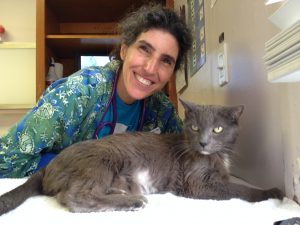Chinese medicine is a medical system that has existed for over 23 centuries and has used to diagnose, treat and prevent disease.
Concepts
Familiar to most people is the concept of Yin and Yang, symbolized by the intertwined images of a swirling circle of black and white with a bit of each within each other. It represents the union of polar opposites and relates to many elements- temperature-hot and cold; moisture-wet and dry; location- inner and outer; persons- body and mind; seasons- winter and summer and the cosmology- Earth and heaven.
Harmony of these opposites is necessary for good health. Health exists when there is a balance of the body constituents and organs and it is not weakened by changes in the body’s environment.
Body constituents (Five Treasures)
- Qi (pronounced “chee”)- body force that gives body’s capacity to move, think and feel; there are many forms of Qi
- Moisture or Body Fluid- protects and lubricates tissue
- Blood- foundation material from which all else arises
- Shen- spirit; emotional component of an individual
- Essence or Jing- reproductive and regenerative aspects
Organs and Five Elements
Each organ relates to elements of Wood, Fire, Earth, Metal and Water and they interact with each other to maintain the body constituents.
- Kidneys- associated with the element of water, they manage fluid metabolism and stores Essence and is responsible for reproduction, growth and regeneration; it controls teeth, bones, marrow, brain, inner ear and lower back and the emotion of fear. So conditions such as decreased hearing, stunted growth, lower back pain and infertility are problems of the Kidneys.
- Heart- associated with Fire, the Heart controls the Blood and houses the spirit and governs the mind. When the Heart is disturbed, anxiety, restless sleep and arrhythmias can occur.
- Spleen- associated with Earth, the Spleen is important in the assimilation of food and fluids. When it is not functioning properly, digestive problems ensue (vomiting, diarrhea, poor appetite)
- Liver- associated with the element of Wood, the Liver’s storage of Blood and control of the flow of Qi; a problem with this organ can cause skin problems (dryness, itchiness) and emotional upset such as moodiness.
- Lungs- associated with the element of Metal, it defends the body and sets the body’s rhythms; a problem with the lungs could cause vulnerability to colds and fluids
Diagnosis
In TCVM, a diagnosis is based on the patient’s history, physical exam and tongue and pulse. The tongue can indicate the body’s overall status, and the pulse can indicated the body’s condition at that time. Both are assessed for: deficiency (pale tongue; weak, thread pulses), heat (red tongue and bounding pulses), stagnation (purple tongue and tight) to determine the best approach to remedy the body’s condition to return it back to balance.
Treatment
The goal of treatment is to adjust and harmonize Yin and Yang; hot and cold; inner and outer; wet and dry to achieve a balance. The duration of treatment depends of the nature of the problem, its severity and its duration; more chronic conditions tend to take more time to respond. Treatment is done through acupuncture, herbal supplements and dietary changes.
